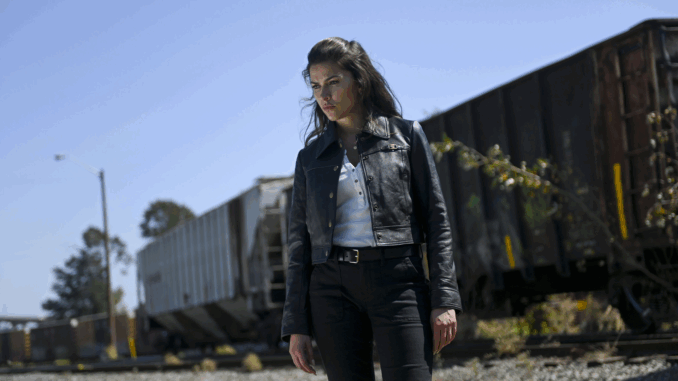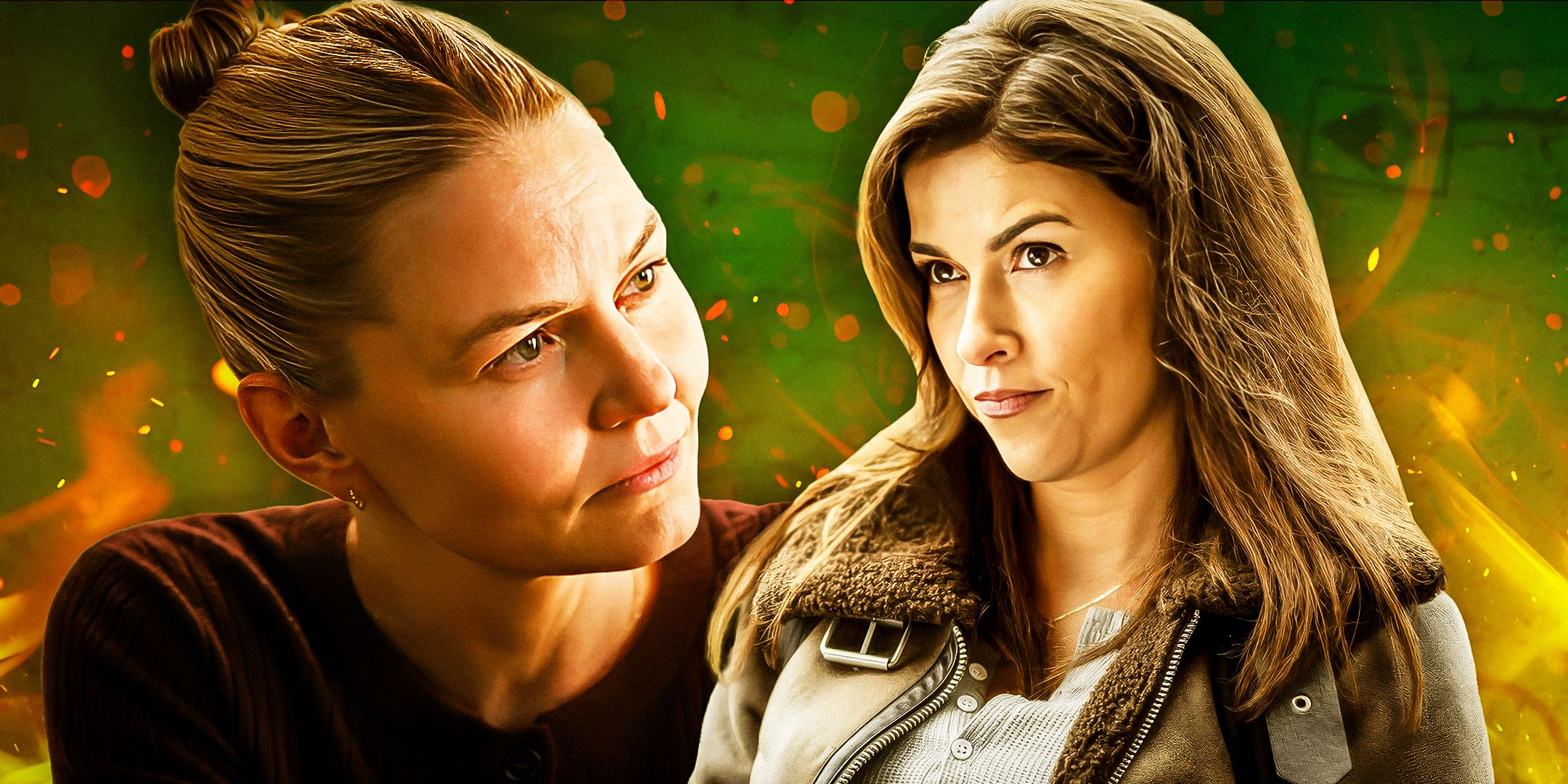
More Than Just Supporting Characters
Though Tracker centers around Colter Shaw’s relentless search for missing persons, one of the most compelling—and often underrated—aspects of the show is how it portrays the women he meets along the way. Whether they’re victims, allies, or skeptics, these female characters are never passive participants in the story. They’re sharp, layered, and often pivotal to the outcome of each case.
Tracker doesn’t lean on outdated tropes of damsels in distress or one-note love interests. Instead, it consistently introduces women who hold their own—and sometimes outsmart the man doing the tracking.
Reenie Greene – Colter’s Grounded Anchor
Reenie, played by Robin Weigert, is the closest thing Colter has to a steady confidante. As one of the key members of his remote support team, Reenie offers more than tech assistance—she provides emotional stability. She’s fiercely intelligent, no-nonsense, and sees through Colter’s deflections with a quiet grace. Her presence humanizes him, often anchoring him when the road threatens to swallow him whole.
Her dynamic with Colter isn’t romantic—it’s deeper. There’s respect, history, and a maternal protectiveness that doesn’t undermine her toughness. Reenie is the show’s reminder that behind every tracker is a brilliant mind helping him stay one step ahead.
Lizzy Hawking – The Sister in the Shadows
Another crucial female figure is Colter’s sister, Lizzy. Though she doesn’t appear in every episode, her influence is deeply felt. Lizzy chose to cut ties with the Shaw family’s dark legacy, creating distance from the trauma that Colter still carries with him. Her decision to walk away was an act of courage—not weakness.
When she does reappear, Lizzy challenges Colter in ways no one else can. She forces him to examine his motives, his moral compass, and the toll this nomadic life takes on his soul. She doesn’t coddle him, and she doesn’t apologize for her truth.
Episode-Specific Women Who Steal the Spotlight

Each standalone episode of Tracker introduces new women who often surprise both Colter and the audience. A grieving mother who becomes a fierce advocate for her missing child. A small-town sheriff who won’t be bulldozed by outsiders. A hacker with a past who helps Colter crack a case but refuses to let him get too close.
These characters are not filler. They’re vital to the narrative and offer glimpses into Colter’s worldview, challenging his assumptions and, at times, his ego.
No Forced Romance—And That’s the Point
In a lesser show, Colter would be romantically entangled in every other episode. But Tracker resists that temptation. The series understands that intimacy doesn’t always mean romance—and that connection can exist without seduction.
Colter’s relationships with women are built on mutual respect. Even when there’s chemistry, the show doesn’t reduce those moments to flirtation. It treats women as equals—co-investigators, confidants, and sometimes foils. This mature handling of gender dynamics sets Tracker apart from many of its procedural peers.
A Mirror to Colter’s Internal Conflict
The women in Tracker often act as emotional mirrors for Colter. Through them, we see his restraint, his guilt, and his buried longing for belonging. He listens to them in a way he rarely listens to men. It’s not about weakness—it’s about vulnerability.
In many ways, the women he meets along the way are symbolic of the stability he can never quite grasp. They remind him of what a normal life might look like—but also why he can’t have it. Not yet.
Elevating the Genre, One Character at a Time
By giving women complexity, agency, and emotional depth, Tracker subtly reshapes the procedural drama template. It doesn’t scream about feminism or representation—it simply does the work, letting its female characters stand tall on their own merit.
Whether they’re fighting back, offering insight, or outwitting Colter at his own game, the women of Tracker are never sidelined. They’re part of the moral fabric of the show.
The Unwritten Code of Respect
There’s an unspoken code in Tracker: Colter never underestimates the women he encounters. That silent, unwavering respect is what makes his interactions so compelling. It’s not performative. It’s earned, and it’s mutual.
As the series evolves, so too does the emotional tapestry woven through these characters. They might not be on the poster, but they’re an essential part of why the show resonates.
